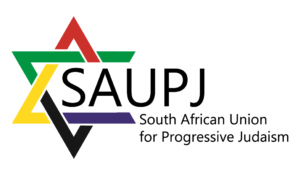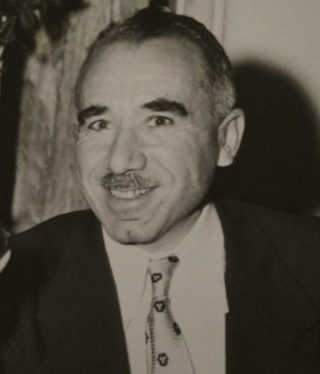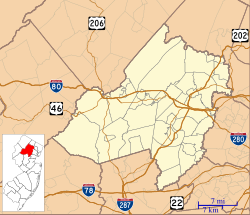The National Council of Young Israel (NCYI) or Young Israel, is a synagogue-based Orthodox Judaism organization in the United States with a network of affiliated "Young Israel" synagogues. Young Israel was founded in 1912, in its earliest form, by a group of 15 young Jews on the Lower East Side of Manhattan. Their goal was to make Orthodox Judaism more relevant to young Americanized Jews at a time when a significant Jewish education was rare, and most Orthodox institutions were Yiddish-speaking and oriented to an older, European Jewish demographic.

The Israel Movement for Reform and Progressive Judaism is the organizational branch of Progressive Judaism in Israel, and a member organization of the World Union for Progressive Judaism. It currently has 40 communities and congregations around the state of Israel, 13 of which are new congregations – referred to as U'faratztah communities – and two kibbutzim, Yahel and Lotan.

Agudath Israel Etz Ahayem, transliterated from Hebrew to mean the Congregation of Israel Tree of Life, is a Conservative Jewish synagogue located at 3525 Cloverdale Road in Montgomery, Alabama, in the United States.
Congregation Beth Israel Abraham Voliner, abbreviated as BIAV, is an Orthodox Jewish congregation and synagogue, located 9900 Antioch Road, in Overland Park, in the Kansas City Metropolitan Area of Kansas, in the United States.
Congregation Am Tikvah is a combined Conservative and Reform Jewish congregation and synagogue located at 625 Brotherhood Way in San Francisco, California, in the United States. The congregation was formed in 2021 as the result of the merger of the Conservative B'nai Emunah and the Reform Beth Israel Judea congregations, with the latter formed in 1969 through a merger of the Conservative Congregation Beth Israel and the Reform Temple Judea. The congregation is affiliated with both the Union for Reform Judaism and the United Synagogue of Conservative Judaism.

This article deals in more detail with some of the notable synagogues of Jerusalem that do not have their own page as yet.
Congregation Beth Jacob is an Orthodox Jewish congregation and synagogue located at 1855 Lavista Road in Atlanta, Georgia, in the United States. It is Atlanta's largest Orthodox congregation.
Lesbian, gay, bisexual, transgender (LGBT) affirming denominations in Judaism are Jewish religious groups that welcome LGBT members and do not consider homosexuality to be a sin. They include both entire Jewish denominations, as well as individual synagogues. Some are composed mainly of non-LGBT members and also have specific programs to welcome LGBT people, while others are composed mainly of LGBT members.
Ohev Sholom Talmud Torah Congregation of Olney, commonly known as OSTT, is an Orthodox synagogue located at 18320 Georgia Avenue, in Olney, Maryland, in the United States.
The 2020 estimate of the Jewish population in metropolitan Chicago is around 319,600, according to Brandeis University's Chicago Report. The population of Jewish people within the City of Chicago's limits is estimated to be around 240,000, with another 80,000 residing in the suburbs surrounding the major city. At the end of the 20th century there were a total of 270,000 Jews in the Chicago area, with 30% in the city limits. In 1995, over 80% of the suburban Jewish population lived in the northern and northwestern suburbs of Chicago. At this time, West Rogers Park was the largest Jewish community within the city of Chicago. However, the Jewish population within the city had been declining and tended to be older and more well-educated than the Chicago average. The Jewish immigrants to Chicago came from many different countries, with the most common being Eastern Europe and Germany.
The history of the Jews in Atlanta began in the early years of the city's settlement, and the Jewish community continues to grow today. In its early decades, the Jewish community was largely made up of German Jewish immigrants who quickly assimilated and were active in broader Atlanta society. As with the rest of Atlanta, the Jewish community was affected greatly by the American Civil War. In the late 19th century, a wave of Jewish migration from Eastern Europe brought less wealthy, Yiddish speaking Jews to the area, in stark contrast to the established Jewish community. The community was deeply impacted by the Leo Frank case in 1913–1915, which caused many to re-evaluate what it meant to be Jewish in Atlanta and the South, and largely scarred the generation of Jews in the city who lived through it. In 1958, one of the centers of Jewish life in the city, the Hebrew Benevolent Congregation, known as "The Temple" was bombed over its rabbi's support for the Civil Rights Movement. Unlike decades prior when Leo Frank was lynched, the bombing spurred an outpouring of support from the broader Atlanta community. In the last few decades, the community has steadily become one of the ten largest in the United States. As its population has risen, it has also become the Southern location of many national Jewish organizations, and today there are a multitude of Jewish institutions. The greater Atlanta area is considered to be home to the country's ninth largest Jewish population.

The South African Union for Progressive Judaism (SAUPJ) is an affiliate of the World Union for Progressive Judaism and supports 11 progressive congregations. Rabbi Moses Cyrus Weiler, a founder of Reform Judaism in the country, led the country's first Reform synagogue, Temple Israel in Hillbrow, Johannesburg. Weiler is credited with growing the movement, to represent 15-17% of South African Jewry and establishing 25 congregations in the country. A 2020 joint study by the Institute for Jewish Policy Research and the University of Cape Town showed that 12% of Jews identified as Progressive and that in relative terms the progressive strands are increasing after falling to 7% in 1998 and 2005 studies. In Johannesburg, the community accounts for 7% of the city's Jewry, rising to 18% in Cape Town and 25% in Durban.

Theodore Tuvia Zvi Friedman was an American and Israeli conservative rabbi, spiritual leader, and author. From 1962 to 1964, he served as the president of The Rabbinical Assembly, the international association of Conservative rabbis. During his tenure, he supported the African-American Civil Rights Movement.
Black Jews in New York City comprise one of the largest communities of Black Jews in the United States. Black Jews have lived in New York City since colonial times, with organized Black-Jewish and Black Hebrew Israelite communities emerging during the early 20th century. Black Jewish and Black Hebrew Israelite communities have historically been centered in Harlem, Brooklyn, The Bronx, and Queens. The Commandment Keepers movement originated in Harlem, while the Black Orthodox Jewish community is centered in Brooklyn. New York City is home to four historically Black synagogues with roots in the Black Hebrew Israelite community. A small Beta Israel (Ethiopian-Jewish) community also exists in New York City, many of whom emigrated from Israel. Black Hebrew Israelites are not considered Jewish by the New York Board of Rabbis, an organization representing mainstream Rabbinic Judaism. However, some Black Hebrew Israelite individuals in New York City are recognized as Jewish due to converting through the Orthodox, Conservative, or other Jewish movements.






